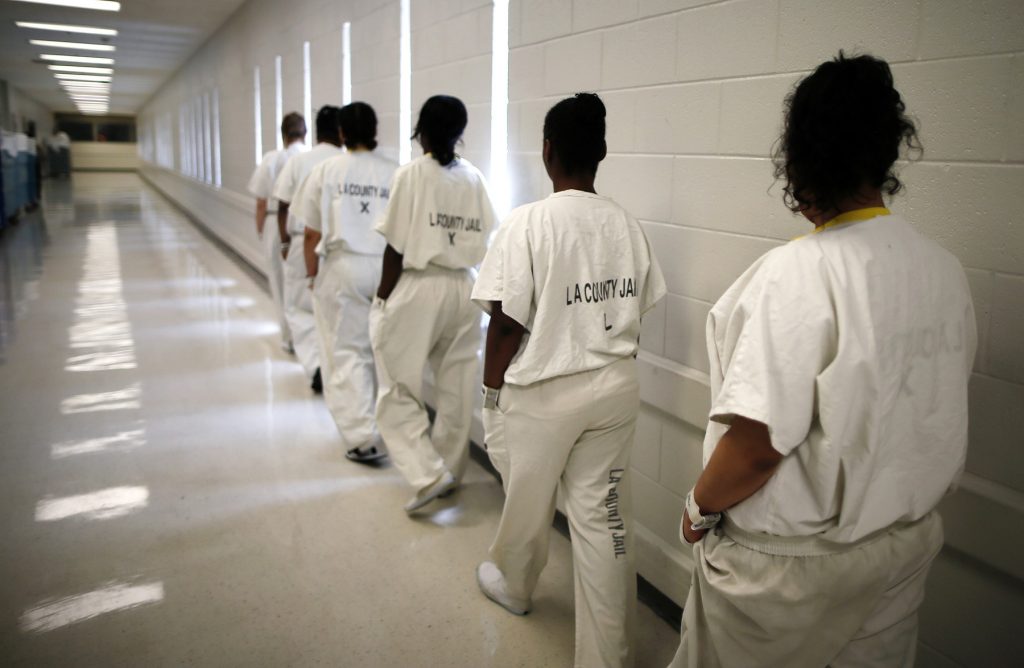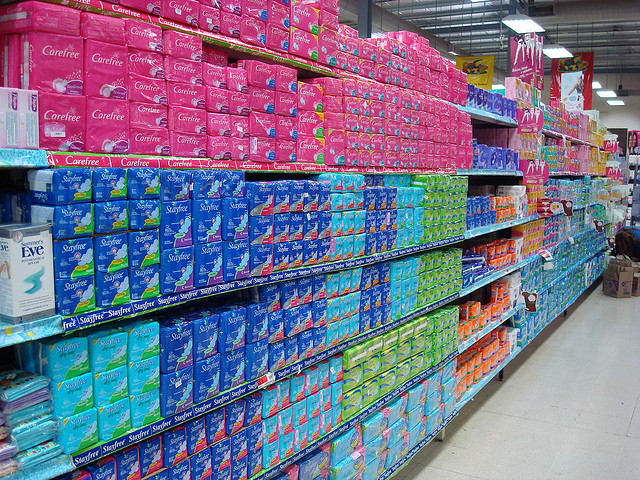For incarcerated women in the U.S., the experience of a monthly period can be stressful and demeaning.
While jails often supply menstrual products, such as pads and tampons, they are typically poor quality and doled out in limited numbers. If a woman needs more than what’s been allocated for her, she might be able to buy products from the commissary — if she can afford it.
Otherwise, it’s likely up to guards to decide if they want to provide additional supplies, further reinforcing the unequal power structure and raising the risk of abuses.
Now, thanks to legislation passed unanimously by the New York City Council on Tuesday, that will no longer be the case for women jailed in the nation’s largest city.
Under a new bill, “all female inmates in the custody of the department shall be provided, at the department’s expense, with feminine hygiene products as soon as practicable upon request” (emphasis added).
The bill was part of a “menstrual equity” legislative package that also ensures access to free period supplies in public schools and homeless shelters. It awaits a signature from New York City Mayor Bill de Blasio, which is expected.
“When over half of New York City’s residents experience menstruation, it is crucial to acknowledge their needs and show value and respect for their bodies by making menstrual hygiene products widely and easily available,” New York City Council member Julissa Ferreras-Copeland said last year in a statement proposing the legislation. “No student, homeless individual or inmate should have to jump through hoops, face illness or feel humiliated because they cannot access pads or tampons.”
The only jail in New York City that houses female inmates is the Rose M. Singer Center, located on Rikers Island. A little over 600 inmates are currently held there. According to Ferreras-Copeland’s office, the New York City Department of Correction provides 144 generic sanitary pads each week per 50 inmates, which works out to be about 2.8 pads for each woman.
“It’s shocking in this day and age and in a civilized society that we are voting on providing basic sanitary supplies to women,” said Brenda V. Smith, a professor at the Washington College of Law at American University. “While prison officials get to control some aspects of a prisoner’s experience, control over an inmate’s bodily functions is not one of them.”
She noted that she knew of a number of prison rape cases in which women resorted to trading sex with guards in order to access critical period supplies.
“If you have to pay for them, and you actually don’t have any money, then what’s going to happen is that you’re going to end up trading sex for sanitary napkins,” she said. “Being able to manage your periods is so basic for women. It’s a matter of dignity. It really goes to the core of a woman’s personhood.”
It’s important to note that the legislation will only apply to the city’s jails, and not the approximately 2,300 women in New York state prisons. The devastatingly subpar access to menstrual hygiene products in this system has been widely reported.
A scathing report published last year by the Correctional Association of New York found that New York state prison authorities failed to provide most female prisoners with enough sanitary napkins and toilet paper.
More than half of the women surveyed said they were not given enough sanitary pads each month. To get more supplies, women reported having to apply for a medical permit.
“This practice is misguided given that the underlying reason many women need more pads is not a medical illness” but rather the failure to “distribute an adequate number of sanitary napkins in the first place,” the report stated.
At one facility, which has now closed, incarcerated women reported that doctors made them show a bag filled with used sanitary napkins if they wanted more.
Gail Smith, director of the Women in Prison Project at the Correctional Association of New York, urged the state to undertake a similar initiative so women in state prisons could also have access to sufficient supplies.
“Sanitary pads available for purchase in the prison commissary are too expensive for women making 17 cents an hour at a prison job assignment, and having to ask a male officer for extra pads is humiliating, and should not be necessary,” she said.
The number of women behind bars in the U.S. has dramatically risen over the past few decades. In 2014, there were approximately 215,332 incarcerated women in America, an increase of 700 percent since 1980.
“Not having access to sanitary napkins takes away our rights as women and makes us feel ashamed of having a monthly cycle,” said Miyhosi Benton, a formerly incarcerated woman and current associate for the Women and Justice Project.
“Preventing us from getting something we absolutely need goes right to the heart of what prisons are — a site of punishment, control and dehumanization,” she said.


